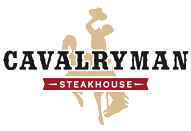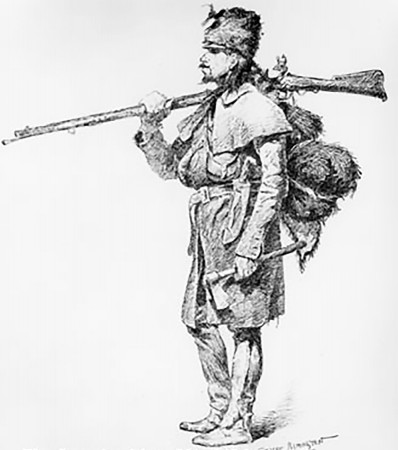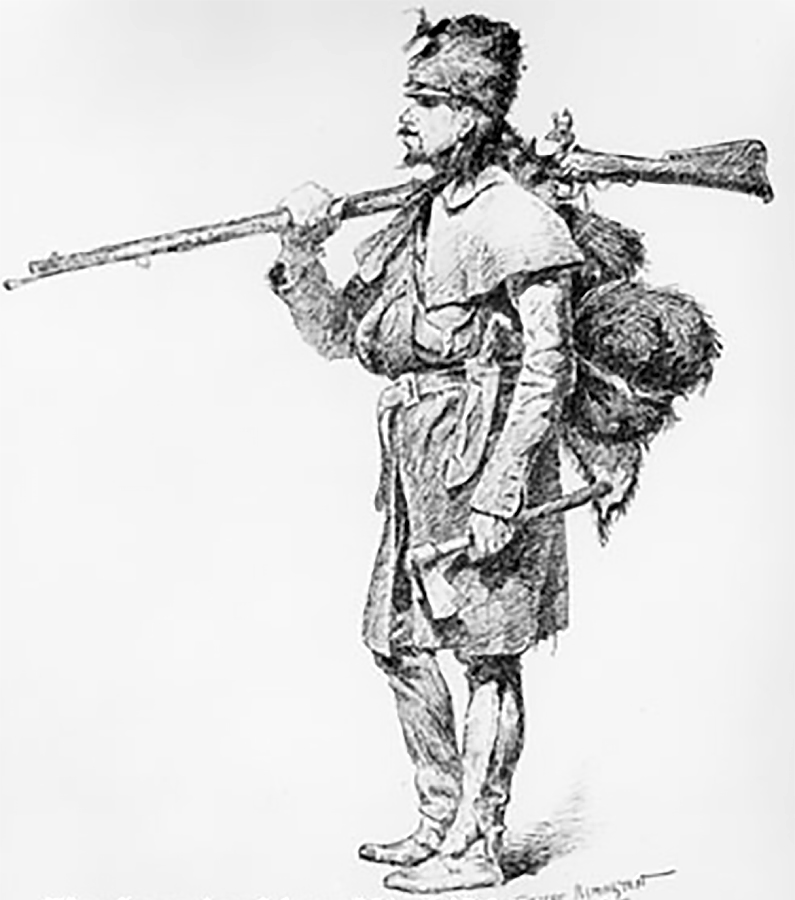“Coureur des Bois” or “Woods Runners” were men from New France (Montreal) who made their way out west to trap fur animals. Jacque LaRamie would fit into this group of French trappers and explorers.
Prior to the Lewis and Clark Expedition, the term “Coureur des Bois” was most strongly associated with those who engaged in the fur trade in ways that were considered to be outside of the mainstream. Early in the North American fur trade era, this meant circumventing the normal channels and instead going deeper into the wilderness to trade. Later, during the late 17th and early 18th centuries, the practice involved trading without permission from the French authorities when such permission was required. During the 17th century, the fur trade was very lucrative for New France. Competition was fierce, and many colonists risked the journey west and north through hostile Iroquois territory from the settlements around Montreal to the pays d’en haut, or “upper country” (the area around the Great Lakes) to trade with native trappers.
These Coureurs des Bois were often not looked upon favorably by Montreal authorities or royal officials. French authorities preferred that the transportation of furs be handled by the natives (and later the Voyageurs) than have independent, unregulated traders handle it. As a way to curb the unregulated trade of independent businessmen and their burgeoning profits, the government of New France instated a permit system. Coureurs des Bois were basically unlicensed traders, treated at times as outlaws by New France authorities. At other times, they were tacitly used to help further French objectives for the New World.
According to historian W. J. Eccles, during the 17th century, Coureur des Bois meant “anyone who went into the wilderness to trade for furs.” Until 1681 this practice was illegal in the French territories in North America and so to a certain extent the term meant “outlaw”. After 1681, the meaning was reinforced by the reference to those who operated outside of the licensing process.


